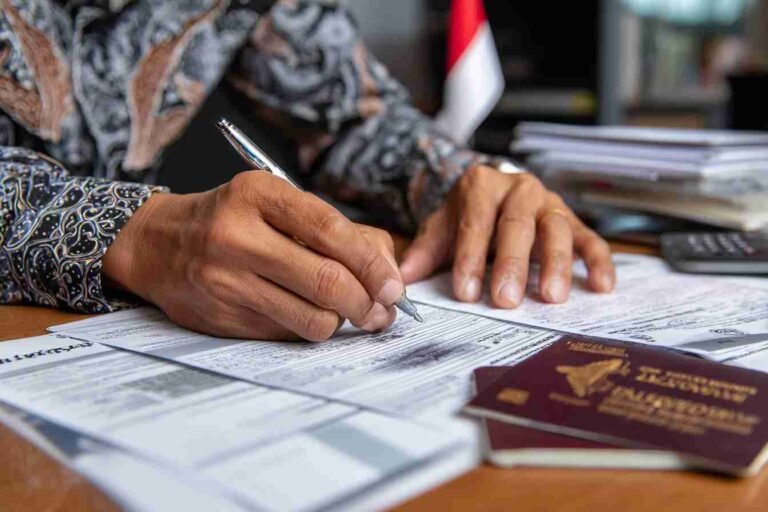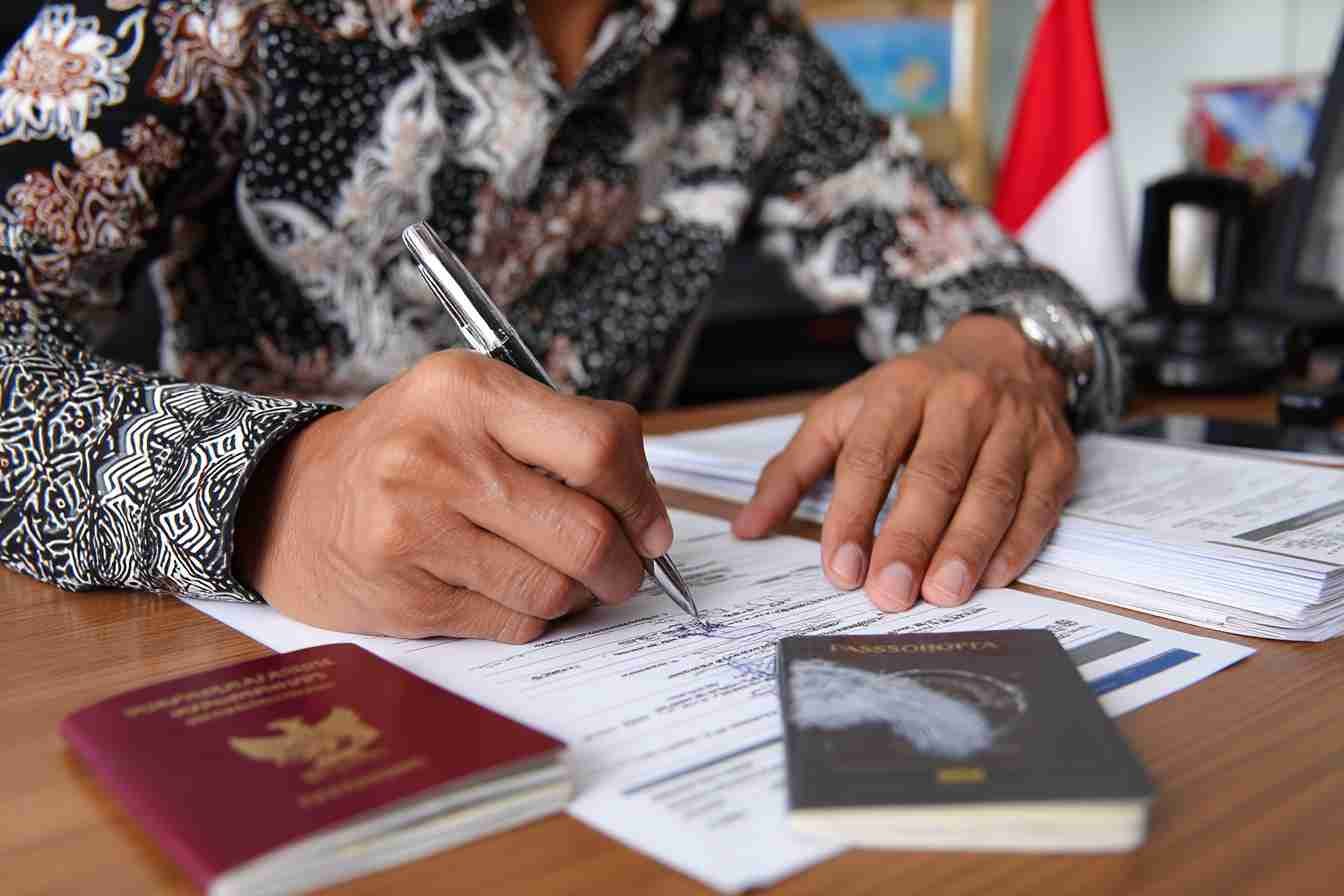
Planning to apply for a visa to Thailand? You might be surprised to learn that it’s not just forms and passport photos — authorities require your fingerprints to be notarized, even before you arrive in Thailand. 😮
Many travelers and expats overlook this detail, only to face delays or outright rejection of their visa or police clearance request. Without notarized fingerprints, your application process can come to a frustrating halt. ⏳🚫
But don’t worry — in this article, we’ll explain exactly why Thailand needs notarized fingerprints and how you can get them done — even if you’re traveling or living abroad. ✈️🖐️
This requirement isn’t new, but it’s often misunderstood. Based on real experiences from international applicants and guidance from visa agencies, this guide will help you avoid mistakes others have made. ✅
For instance, one traveler thought a local police check from their home country would be enough — only to learn in Bangkok that Thai authorities required Thai police clearance, based on notarized fingerprints. The result? Delayed stay and expensive rebooking. 😩💸
Ready to make sure your Thailand visa process goes smoothly? Let’s break down what notarized fingerprints are, why they’re needed, and how you can complete this step — even before you set foot in Thailand. 👣🗺️
Table of Contents
- What Are Notarized Fingerprints?
- Why Thailand Requires Notarized Fingerprints
- The Role of Thai Police Clearance in Your Visa
- How to Notarize Fingerprints Outside of Thailand
- How Long the Clearance Process Takes in Thailand
- Common Mistakes and How to Avoid Them
- Is an Apostille Required Too?
- Final Tips Before Submitting Your Application
- Frequently Asked Questions
What Are Notarized Fingerprints?
Notarized fingerprints are official fingerprint documents that have been signed and authenticated by a licensed notary public. ✅
The notary confirms your identity by checking your official ID and witnessing your signature during the fingerprinting session. ✅
This ensures that the fingerprint card is truly yours and not falsified or completed by someone else.
In legal, immigration, and visa applications, this notarization provides a layer of trust and verification.
Thai authorities rely on this step to avoid forgery or impersonation. 🖐️📝
❗ Without notarization, the fingerprint document may be rejected immediately by Thai Police or immigration departments. 🚫
Why Thailand Requires Notarized Fingerprints
Thailand’s immigration policy emphasizes personal identification integrity and strict background verification. ✅
Notarized fingerprints are used to ensure the applicant’s identity is confirmed in their home country before Thai authorities proceed with a background check.
This helps prevent people with serious criminal histories from entering Thailand under false pretenses. 🔍🛂
Notarized fingerprints act as a safeguard, reducing the risk of identity fraud.
❗ If fingerprints are submitted without notarization, the Thai police may reject the police clearance request outright. 😟
The Role of Thai Police Clearance in Your Visa
A Thai Police Clearance Certificate is often required for:
Long-term visas (education, retirement, volunteer, etc.)
Work permits or employment-based visas
Residency or immigration cases
✅ Before Thai police issue this certificate, they need your official, notarized fingerprint document.
This certificate proves you have no criminal record in Thailand, which is vital for visa officers. 📜🛡️
❗ Without this document, your visa process may be delayed or denied entirely.
How to Notarize Fingerprints Outside of Thailand
After having your fingerprints taken, take the fingerprint document and your valid ID to a notary public. ✅
The notary will:
Confirm your identity with your passport or national ID
Witness your signature
Affix their stamp or seal to certify the document
📄 In some countries, an additional apostille or consular legalization may be required. 🔐
☎️ Always check with your local Thai Embassy or Consulate for specific requirements. 🏛️
How Long the Clearance Process Takes in Thailand
Once your notarized fingerprints are submitted to the Royal Thai Police:
Standard processing takes around 7–14 business days
Express options (if available) can take 3–5 business days 📬
Applications can be submitted:
In person in Bangkok
Mailed from abroad
⏳ Common delays include:
Smudged or unclear fingerprints
Missing notarization
Incorrect document format
✅ To avoid delays, follow the checklist provided by the Thai Police or Embassy and ensure all documents are recent and legible.
Common Mistakes and How to Avoid Them
❌ Submitting fingerprints without notarization
❌ Using outdated or non-standard fingerprint cards
❌ Having fingerprints taken by unauthorized individuals
✅ Always:
Use official, recognized fingerprint forms
Verify the notary is licensed and active
Submit documents within 90 days of fingerprinting
Consider sending a scanned copy of your fingerprint card to the Thai Police in advance to confirm acceptability 🧾✅
Is an Apostille Required Too?
In many jurisdictions, yes — especially for documents issued outside Thailand. 🏛️
An apostille confirms the notary’s authority and the document’s authenticity under international law. ✅
If your country is part of the Hague Apostille Convention, this may be a required step.
If not, you may need consular legalization by the Thai Embassy instead.
🌐 Always verify with the Thai Police or Embassy in advance to avoid costly rejections.
Final Tips Before Submitting Your Application
✅ Double-check all documents for accuracy and completeness
✅ Keep photocopies and digital scans of all submissions
✅ Use trackable mail services if submitting by post
✅ Begin the process early, especially if traveling soon
✅ Prepare to show the original documents during your visa interview
⏰ When in doubt, contact the Thai Police Clearance Service Division or your local Thai Embassy for up-to-date support. 📌
Frequently Asked Questions
-
Can I get my fingerprints taken in Thailand instead?
No, Thai police clearance for foreigners requires fingerprints to be taken and notarized before applying. 🖐️📜
-
How recent must the fingerprints be?
They should be taken within the last 3 months for most visa categories. 📆
-
Can I scan and email the fingerprint form to Thai Police?
No. Originals must be mailed or submitted in person. 📬📄
-
What if my fingerprint card gets rejected?
You will need to redo the fingerprinting and notarization process, which may delay your application. ❗
-
Does every visa type require this step?
Not all. It mostly applies to long-term or employment-based visas. Always check the current requirements. 🔍








